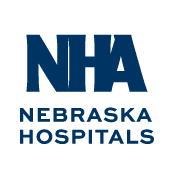CAH Conditions of Participation 2024 (THA 4.24.24)
Date: April 24, May 1, 8, & 30, 2024
Time: 12:00 p.m. – 2:00 p.m. CT
Cost: $495 to NHA members (per hospital registration)
Course Curriculum:
Critical Access Hospitals (CAHs) must comply with the Centers for Medicare & Medicaid Services’ Conditions of Participation located in Appendix W in the manual. This four-part webinar will cover the entire CAH CoP manual. The regulations and interpretive guidelines serve as the basis for determining compliance.
There were multiple changes and new regulations for CAHs in 2020, including a change to all the tag numbers. Most of the new Tag numbers do not include Interpretive Guidelines or Survey Procedures. Other changes included twenty-five new tag numbers in infection prevention and control and antibiotic stewardship and ten new tag numbers in QAPI. As for Swing Bed changes – the regulations are limited to Appendix W, but the interpretive guidelines and survey procedures are in Appendix PP.
This seminar will help CAHs comply with specific CoP problem areas, such as nursing care plans, necessary policies and procedures, medication carts and drug storage, informed consent, and medication administration to name a few.
Learning Objectives:
Part 1-April 24
• Describe that CMS requires the Board enter into a written agreement for telemedicine services.
• Recall CMS 3 worksheets which a CAH can utilize as a self-assessment tool to enhance compliance.
• Describe that CMS has a list of emergency drugs and equipment every CAN must have.
• Recall that all CAH must comply with EMTALA requirements.
• Recall that the average length of stay in a CAH should not exceed 96 hours on annual basis.
Part 2-May 1
• Explain the responsibilities of the pharmacists that include developing, supervising, and coordinating activities of the pharmacy.
• Describe the benefits and requirements for CAH to utilize Compounding Pharmacies.
• Recall the requirements for security and storage of medications, medication carts and anesthesia carts.
• Discuss the requirement for dietary to meet the nutritional needs of patients and requirements of a dietitian.
Part 3-May 8
• Recall that the infection preventionist must be appointed by the board.
• Discuss that insulin pens can only be used on one patient.
• Describe that an order is needed to allow the patient to self-administer medications.
• Explain the three-time frames in which to administer medications.
• Discuss that CMS requires that a plan of care be done.
Part 4-May 30
• Describe the requirements for history and physicals for CAH.
• List what must be contained in the operative report.
• Discuss what the CAH must do to comply with the requirements for notification of the organ procurement (OPO) agency.
• Recall that CMS patient rights are in Swing Beds section.
Who Should Attend:
CEOs, COOs, CFOs, Nurse Executives (CNO), Accreditation and Regulation Director, Nurse Managers, Pharmacists, Pharmacist Compliance Officers, Health information management, Nurses, Nurse Educators, Nursing Supervisors, Quality Managers, Risk Managers, Healthcare Attorneys, Health Information Management Personnel, Social Workers, Patient safety officer, Infection preventionist, Radiology director, Emergency Department Directors, Outpatient Director, Medication Team, Ethicist, Director of Rehab: OT, PT, speech pathology, and audiology, CRNA, Anesthesia providers, Radiology staff, QAPI staff, Policy and Procedure Committee, Dietician, Activities Director of swing bed patients, and Infection Control Committee Members.
Deadline to register is Tuesday, April 23rd.
About the Speaker:
Laura A. Dixon, BS, JD, RN, CPHRM, President, Healthcare Risk Education and Consulting, LLC, Denver, CO
Laura A. Dixon is the president of Healthcare Risk Education and Consulting. She previously served as the Director, Facility Patient Safety and Risk Management and Operations for COPIC where she provided patient safety and risk management consultation and training to facilities, practitioners and staff in multiple states.
Ms. Dixon has more than twenty years of clinical experience in acute care facilities, including critical care, coronary care, peri-operative services and pain management. Prior to joining COPIC, she served as the Director, Western Region, Patient Safety and Risk Management for The Doctors Company, Napa, California. In this capacity, she provided patient safety and risk management consultation to the physicians and staff for the western United States.
As a registered nurse and attorney, Laura holds a Bachelor of Science degree from Regis University, a Doctor of Jurisprudence degree from Drake University College of Law, and a Registered Nurse Diploma from Saint Luke’s School Professional Nursing. She is licensed to practice law in Colorado and California.

